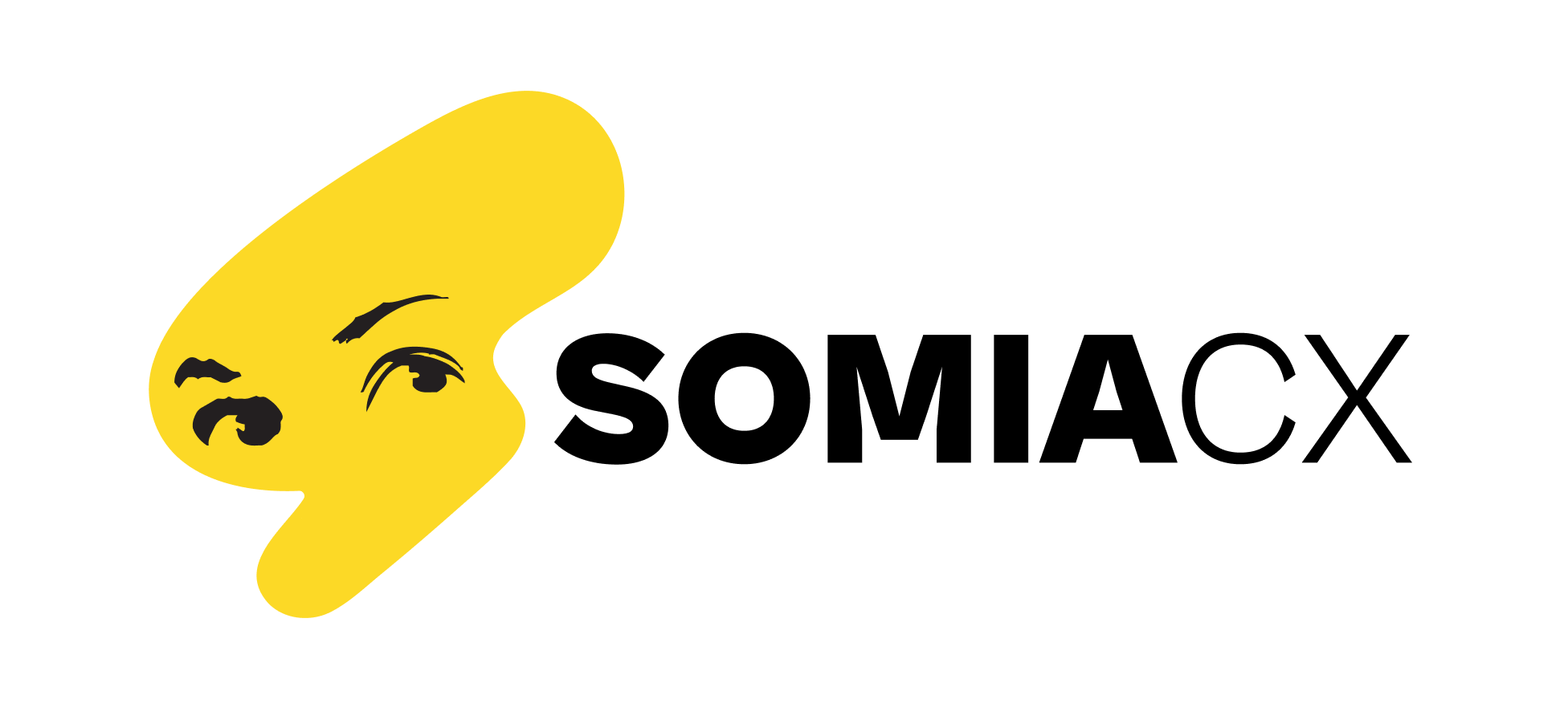MSEs Onboarding Programs for Online Selling: Insights & Best Practices
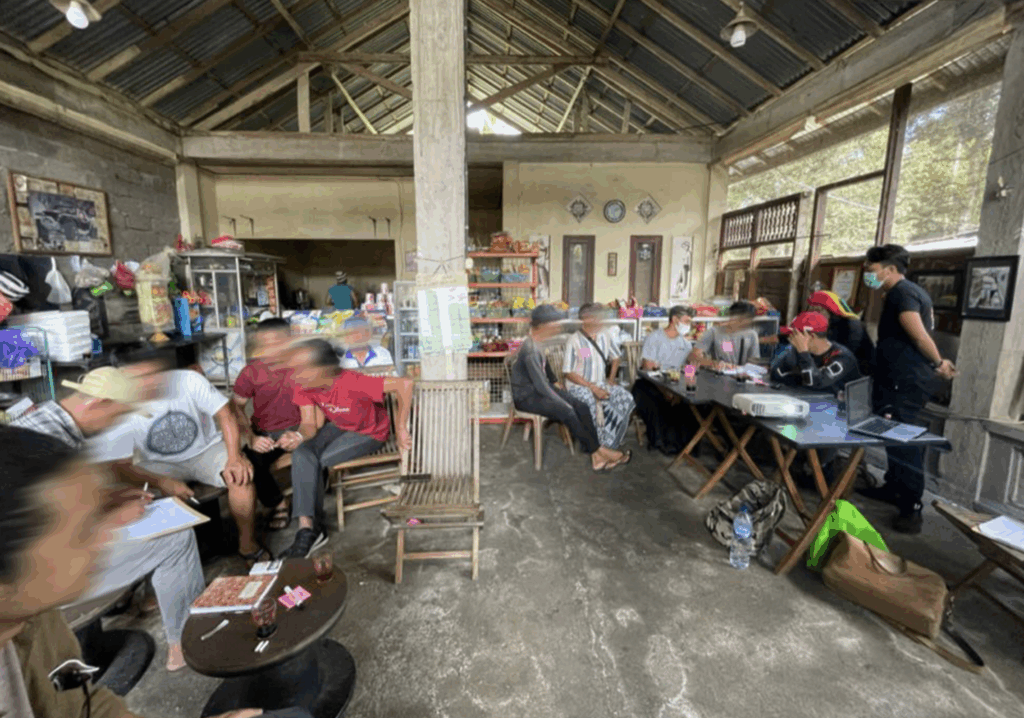
This project looked at how government institutions, NGOs, universities, and digital selling platforms in Indonesia design and run onboarding programs to help Micro and Small Enterprises (MSEs) start and grow their sales online. It focuses on the ecosystem around MSEs, from policymakers and platforms to grassroots facilitators, and how their roles shape program design and outcomes. The goal was to see the bigger picture, including what programs exist, what works well, what challenges remain, and where the gaps are. Commissioned by DFS Lab, funded by the Gates Foundation, and conducted by Somia CX.
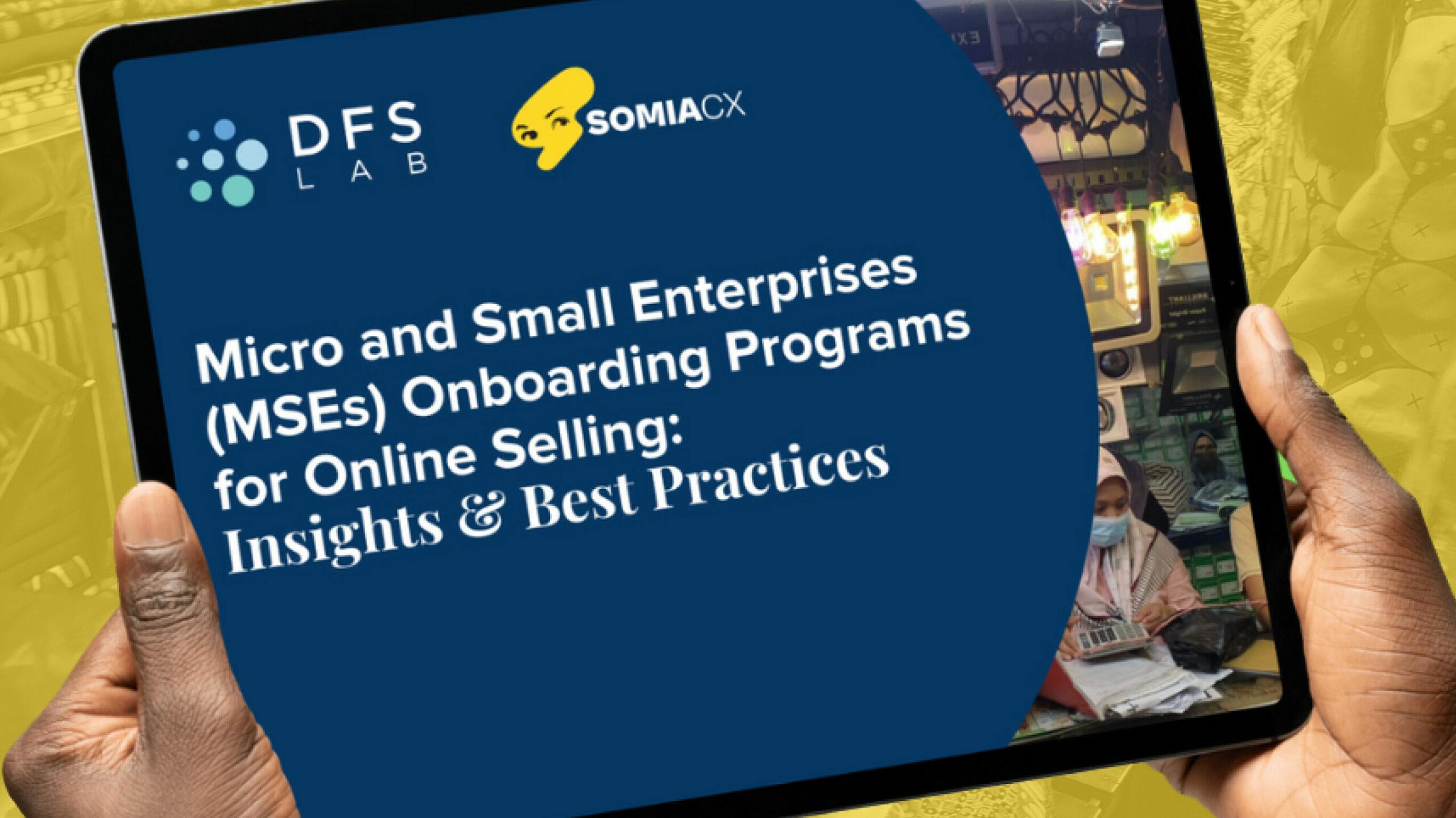
A descriptive report with research insights, best practices, challenges, and field stories. Made to compile the main findings in detail. Written in April 2024.
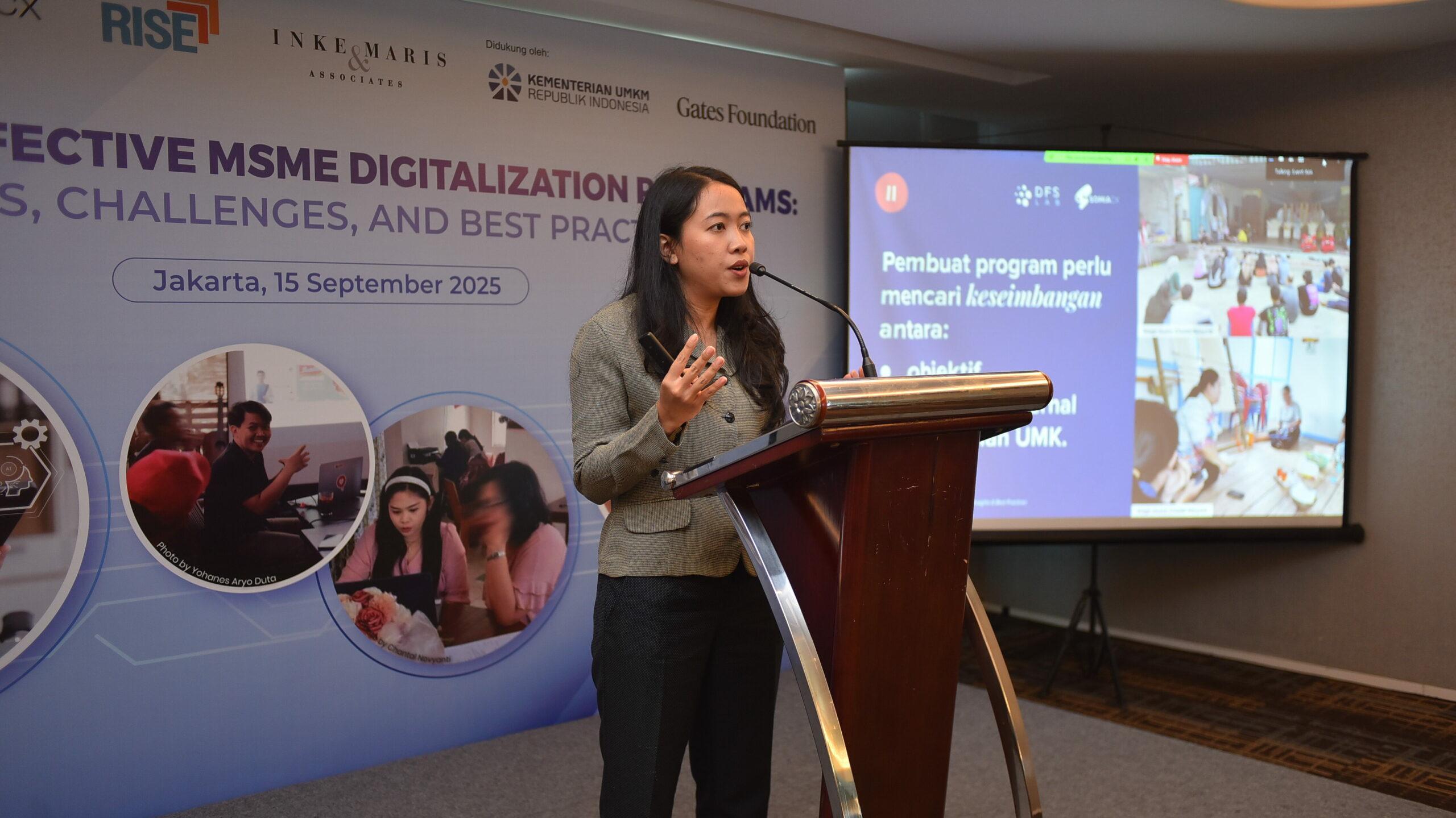
The dissemination presentation with key learnings, best practices, challenges, and opportunities. Made to spark reflection and discussion with government, NGOs, and associations. Written in September 2025.
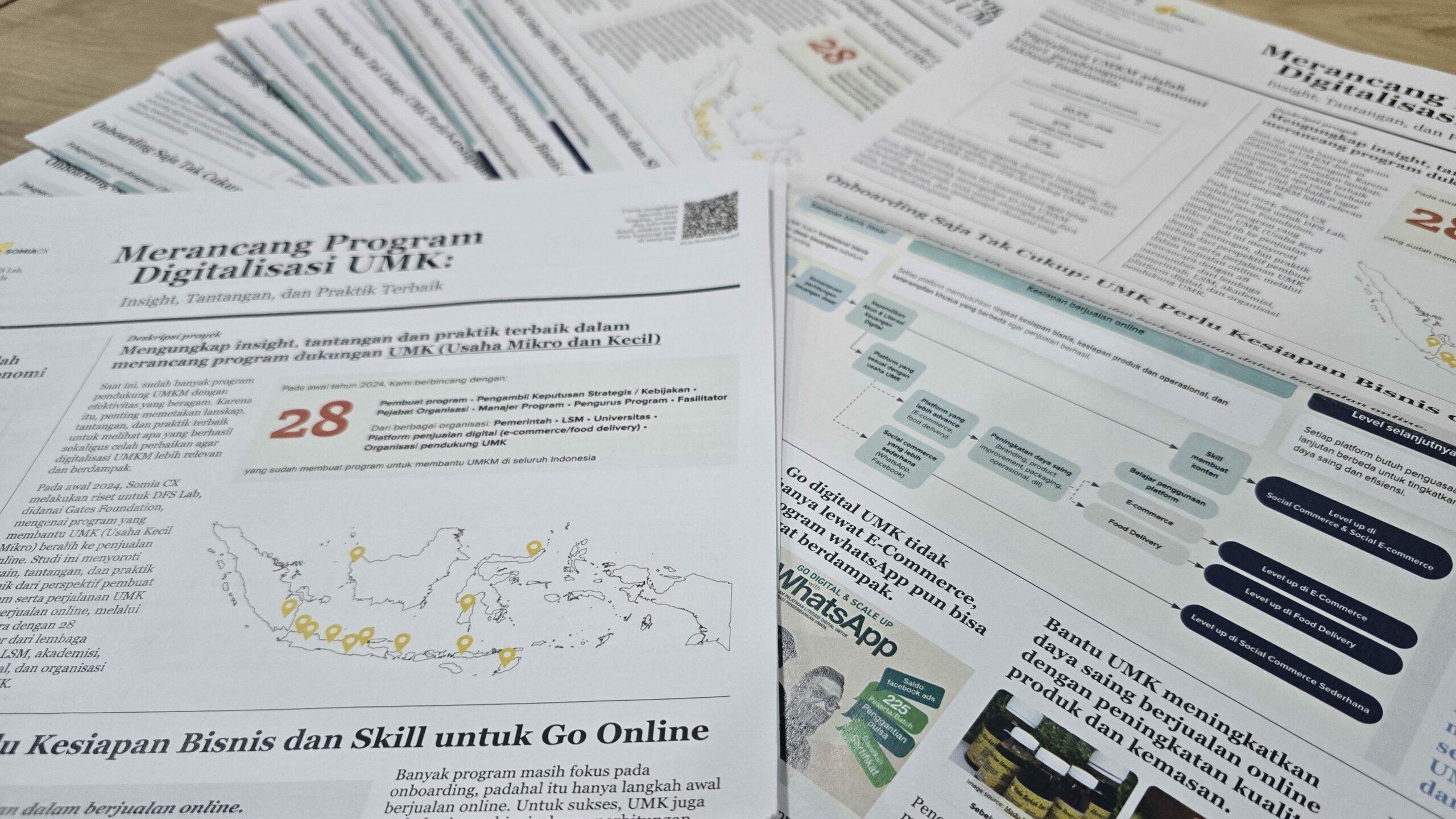
A one-page newspaper summarizing research findings and challenges. Designed to help participants quickly grasp the presentation and take it home as a reference. Written in September 2025.
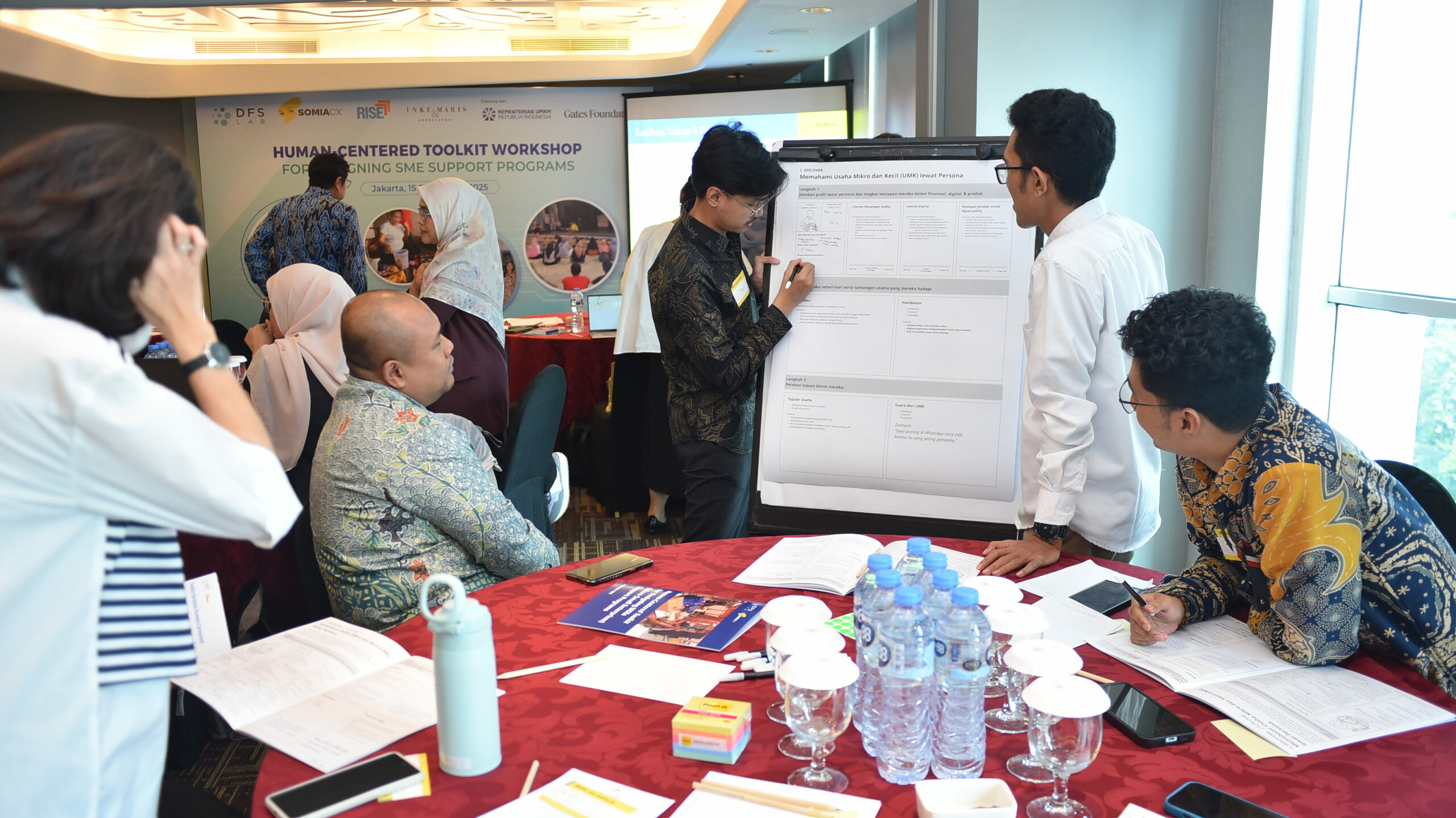
Human-Centered Toolkit for Designing MSE Support Programs. Combining research findings with HCD, this toolkit helps program makers reflect, discuss, and co-design more relevant initiatives for SMEs. Written in September 2025.
The Impact
This research found that effective onboarding for Micro and Small Enterprises (MSEs) requires more than digital tools. MSEs go through several stages before successfully selling online, starting with basic financial literacy and social commerce through platforms like WhatsApp or Facebook. To compete online, they also need production capacity, branding, and operational readiness, including logistics and the time or resources to manage sales consistently.
The report maps the landscape of onboarding programs and outlines best practices, including curated recruitment, pre-assessment, hands-on learning, mentoring, and clear communication of program value. It also highlights key challenges, including limited program discoverability, the absence of a unified MSE database, and the tendency for short-term targets to limit long-term impact.
To broaden its impact, the findings were featured in several national media outlets, including Kompas, iNews Tangsel, Warta Ekonomi, Akurat.co, Getimedia, SINDOnews, and RCTI+, helping to spark public conversation about the need for holistic, integrated approaches to MSE digital empowerment. The research will also be shared in dissemination sessions with government bodies, NGOs, and ecosystem enablers, alongside a user-centric planning toolkit to support future program design.
We have shared the research in dissemination sessions with over 80 participants from government bodies, regulators, financial institutions, digital platforms, NGOs, and business associations, together with a user-centric planning toolkit to spark discussion from the research and inspire next steps for advancing MSMEs.
Our Approach
We conducted in-depth interviews with 19 primary stakeholders involved in MSE support programs, including representatives from government institutions, NGOs, universities, digital selling platforms, and support organizations. These conversations were complemented by additional discussions with 9 other informants and informal inputs from ecosystem players who supported recruitment and context-building.
Although our research team was based in Jakarta, we engaged with stakeholders operating across various regions, including Jakarta, West Java (e.g., Bandung, Bogor), Central Java, East Java (e.g., Malang), Yogyakarta, Bali, South Sulawesi (e.g., Makassar), and East Nusa Tenggara (NTT) and other places. Interviews were conducted through a mix of online and offline sessions, depending on respondent availability and location.
Our Journey and Process
Desk Research and Initial Mapping
Unlike most of our projects, this study focused on mapping the landscape of onboarding programs for Micro and Small Enterprises (MSEs) going digital, rather than solving a single problem. We started with desk research, but found that online information was scarce and mostly surface-level, making it hard to identify deeper challenges.
Snowball Recruitment and Network Outreach
Because program makers were not always visible, we could not use standard recruitment channels. We used snowballing through our networks, direct outreach to program implementers, and connections via DFS Lab and the Gates Foundation network. It turns out many programs are not widely advertised online, as their focus is on delivering education rather than public promotion.
Adaptive and explorative Interviews
We prepared a discussion guide but soon found a rigid structure was not effective. Each organization had its own way of running programs, and the people we spoke with held different roles, from high-level planners and visionary leaders to program managers and facilitators, so one guide did not work for everyone. With shifting topics, we took an adaptive approach to the interviews. After each interview, we debriefed to reflect on what we learned and the research direction, and adjusted the next session’s focus. This kept the research highly exploratory and responsive to new insights.
Synthesis and Reporting
Findings were synthesized into frameworks and a research report outlining program types, MSE readiness stages, best practices, and systemic gaps. These will inform ecosystem players and support the creation of a toolkit for more user-centric program design.
Dissemination & Toolkit workshop
The research was shared through dissemination sessions and a toolkit workshop with over 80 participants from ministries, regulators, financial institutions, digital platforms, NGOs, and business associations. Alongside the findings, we introduced a user-centric planning toolkit, not as a final plan, but as a discussion aid to reflect on program fit with MSE needs. The dissemination aimed to open dialogue among stakeholders and encourage possible next steps for advancing MSE digitalization.
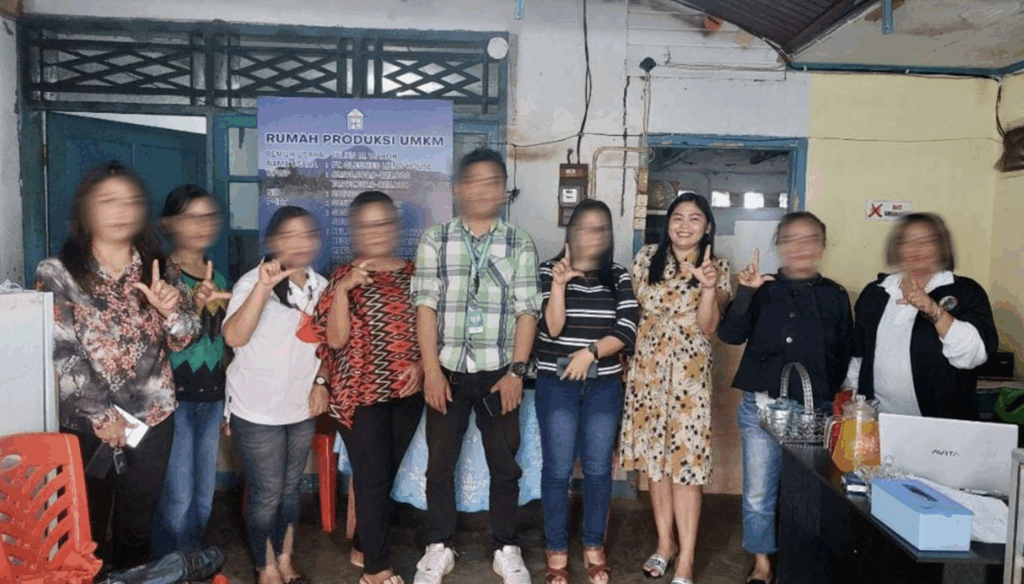
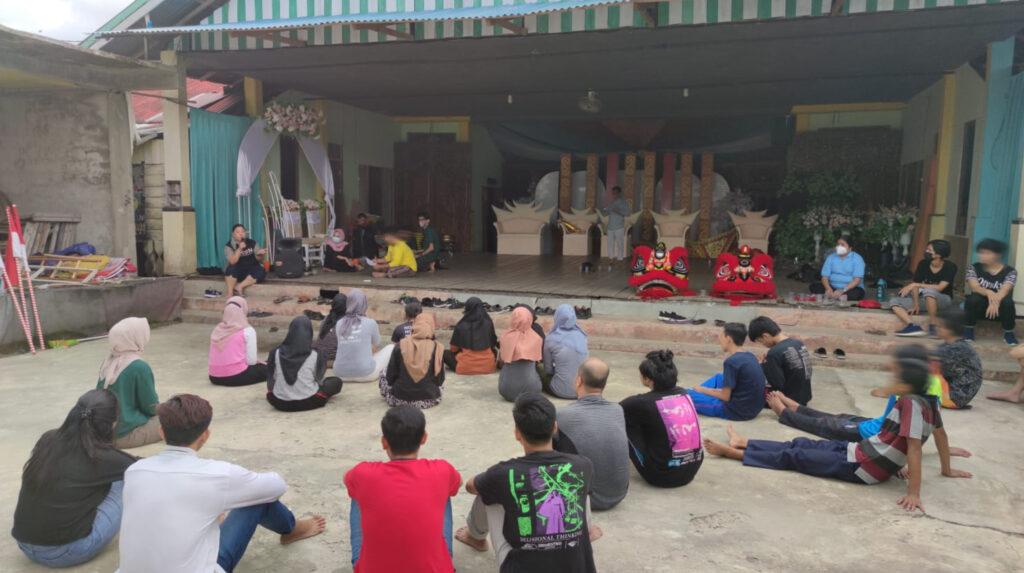
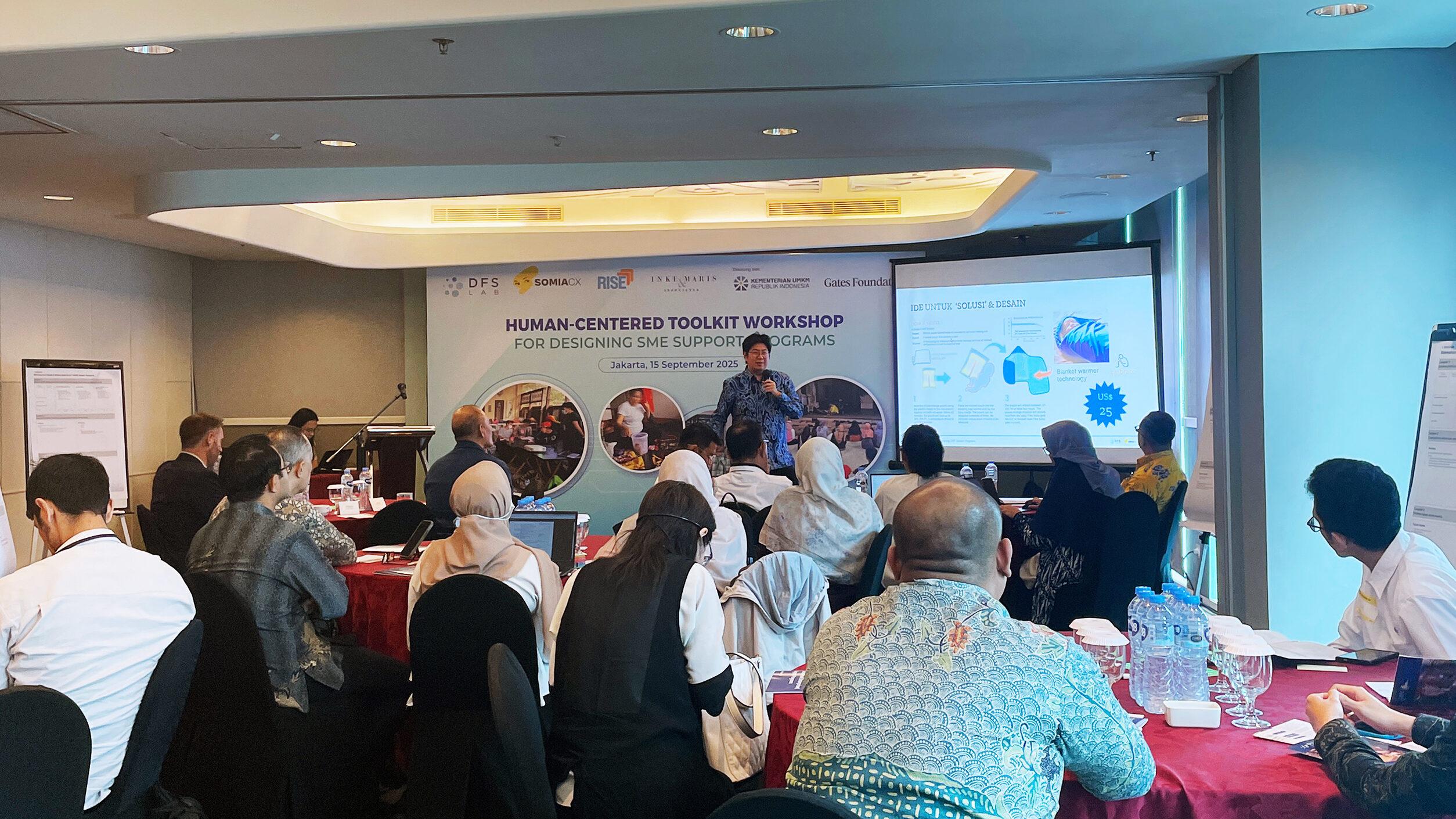
The Results
We created a public report mapping the landscape of MSE onboarding programs, highlighting program types, implementation approaches, readiness stages, and best practices. The findings were presented to ecosystem stakeholders, and a Human-Centered Design-based toolkit with reflective questions was shared and trialed in a workshop to support more user-centric program planning.
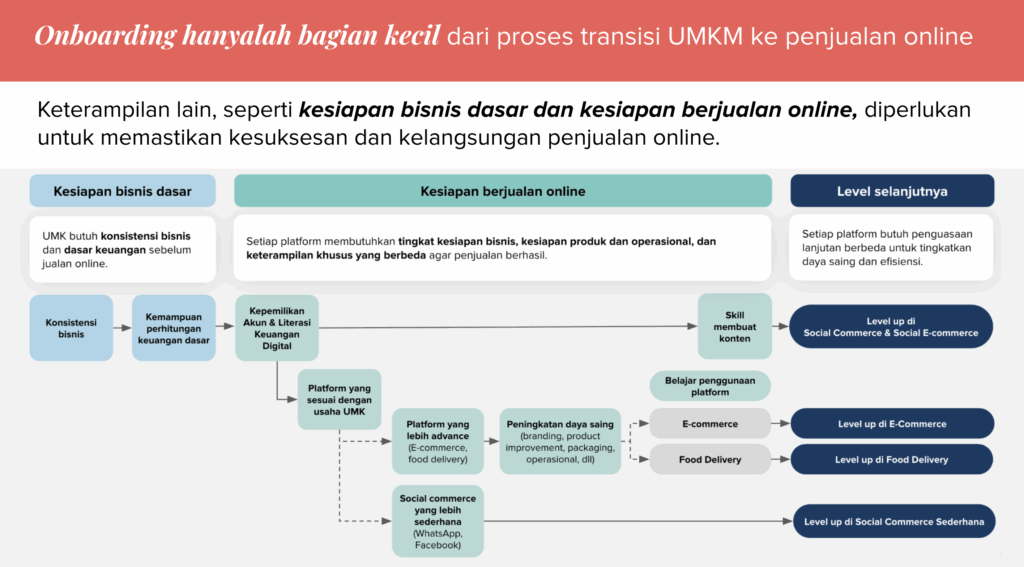
Consultant in-charge

Chin Chin Burkolter
Project Oversee

Rayi Harjani
Project Lead
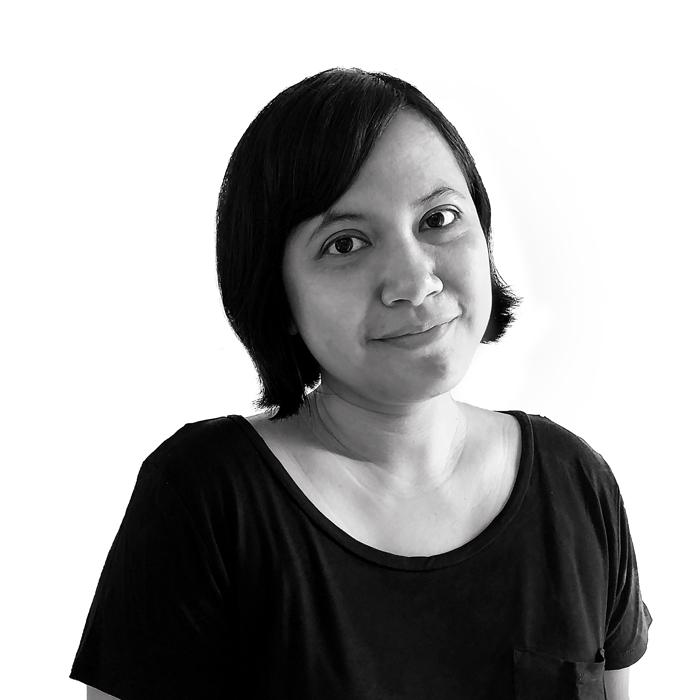
Ketut Sulistyawati
Project Oversee

Nathaniel Orlandy
User Researcher
See more our similar works
Collaborate with us!
Looking for ways to transforming your business?
Get in touch with us!
